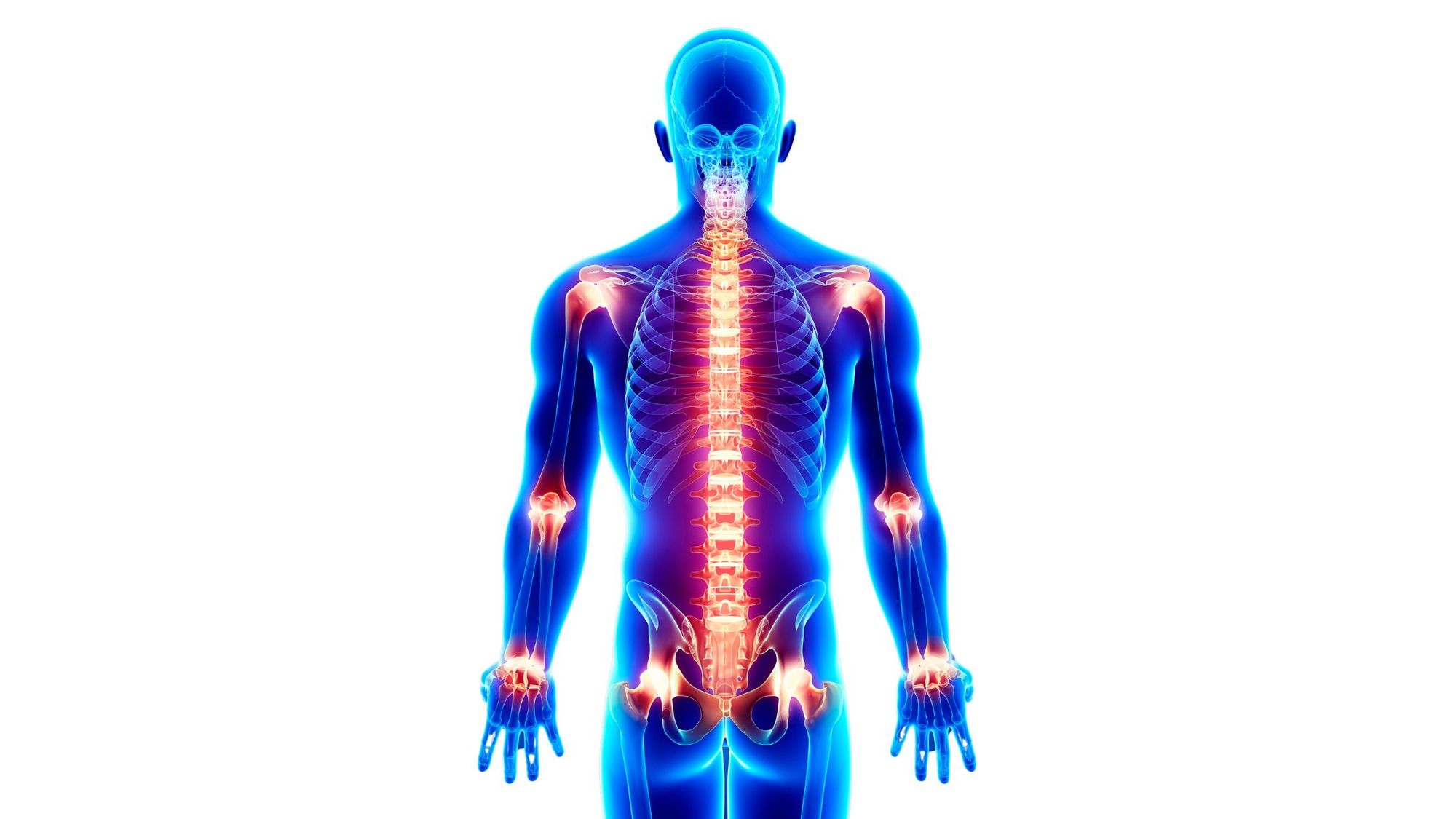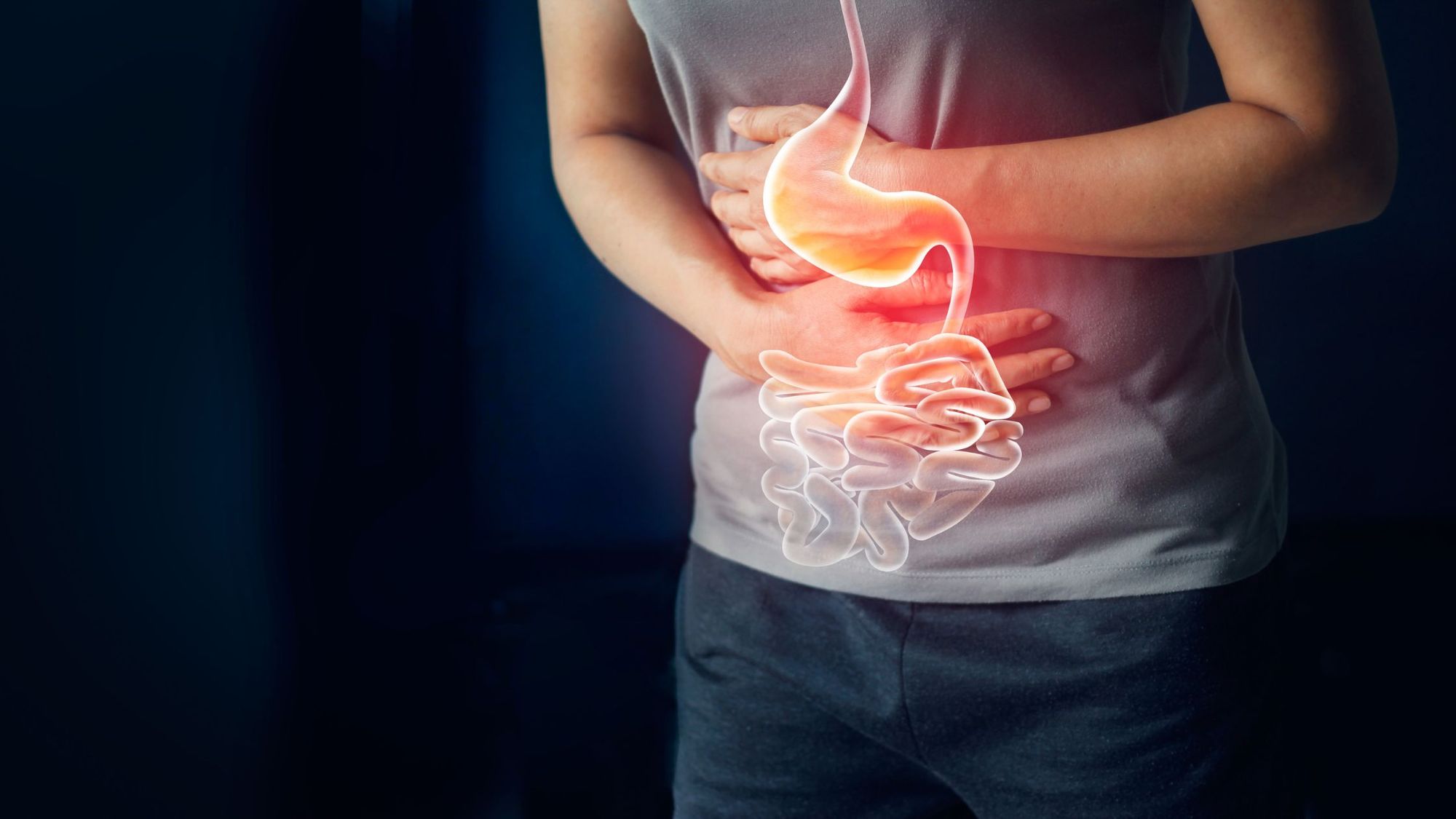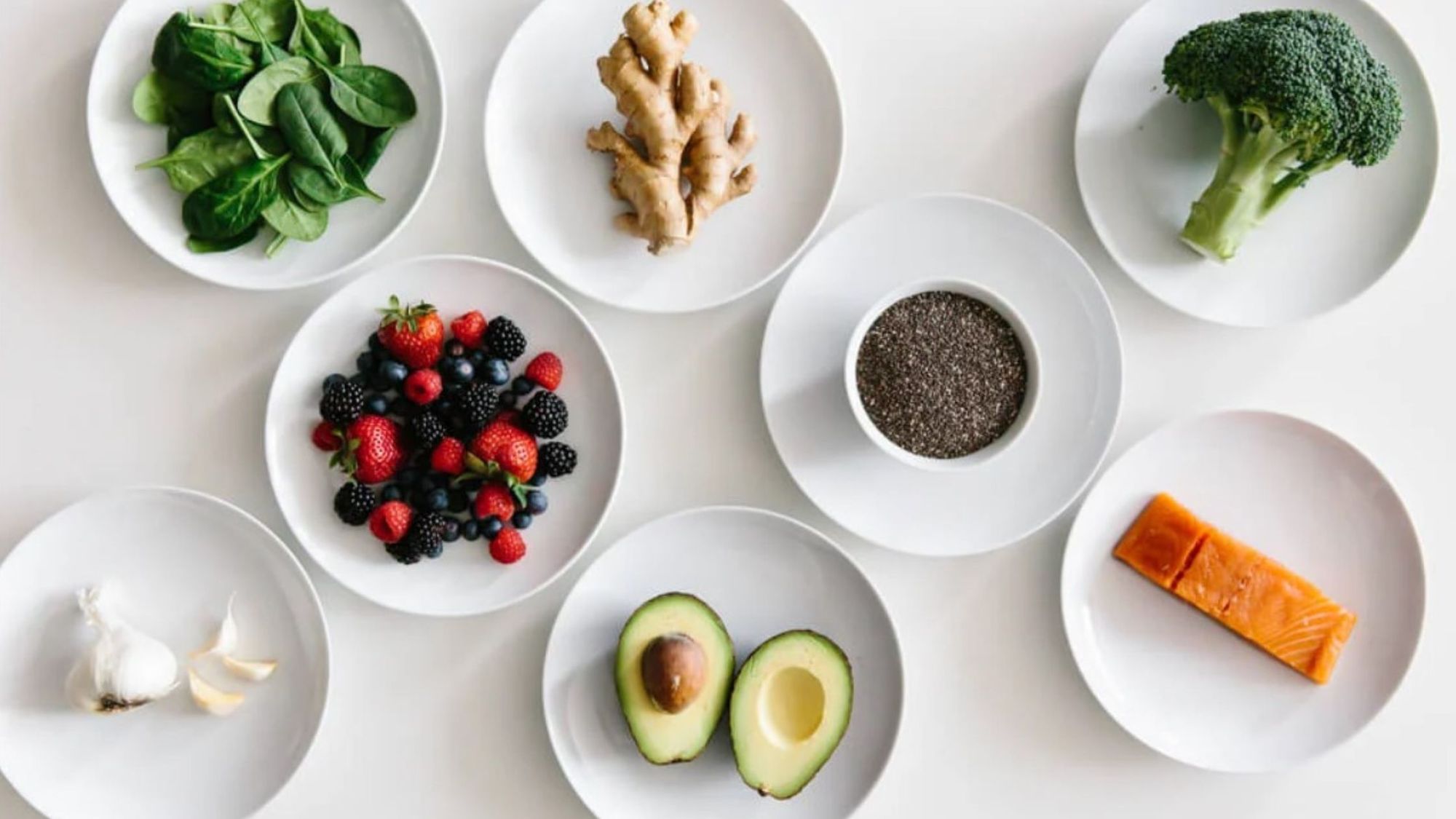
Choosing the right diet for inflammation issues could be the key to reducing inflammation in your body.
Inflammation is a natural process in the human body, but chronic inflammation is not. Inflammation is your body’s way of protecting itself when you’re unwell, or injured, and it even supports the healing process.
Unfortunately, chronic and sustained inflammation, on the other hand, is linked to a multitude of health issues, including heart disease and diabetes.
Because the levels of inflammation in your body are linked to various factors, including aging, stress, poor diet and trouble sleeping, it can be difficult to tackle chronic inflammation. However, there is one inflammatory factor you control more easily than others: your diet.
Choosing a diet for inflammation prevention involves removing highly inflammatory foods from your diet, and switching these foods for anti-inflammatory foods.
This strategy can be particularly beneficial to people with genetic markers which increase their risk of suffering from inflammatory conditions. Adjusting your nutrition plan could help you to live a happier, healthier life, with fewer “inflammatory events”.
What is a Diet for Inflammation?
Inflammation is a side effect of your immune system working to protect you from substances it perceives to be dangerous. When your white blood cell count rises, and your body detects potential damage or foreign invaders, it activates your inflammatory response.
“Acute” inflammation is actually beneficial to your health. This short-lived inflammation increases the dilation and permeability of blood vessels, allowing for the rapid migration of immune cells to an effective area. This ensures your body can rapidly dispose of pathogens and debris from damaged tissue, and initiate the healing process.
Chronic inflammation, however, occurs when your body preserves the immune response for longer than necessary. This chronic inflammation in the body can lead to problems in your digestive system, pain, discomfort, and the onset of various long-term diseases. Many major diseases (such as Alzheimer’s, arthritis, depression and cancer) have been linked to chronic inflammation issues in the body.
A diet for inflammation prevention aims to minimize your exposure to substances which might perpetuate your body’s inflammatory response. Certain foods, such as processed meats, high-fructose corn syrup and artificial trans fats engage the immune system and prolong the inflammatory response.
Alternatively, other foods, such as berries and olive oil, are anti-inflammatory foods that can counteract the causes of inflammation, and reduce your risk of suffering from chronic illnesses. In fact, a Harvard study found the best way to reduce inflammation may lie not in your medicine cabinet, but your refrigerator.

Symptoms of Chronic Inflammation
Before you begin planning a diet for inflammation prevention, you may want to examine whether you’re already experiencing the negative side-effects of a chronic inflammatory response.
Notably, the signs and symptoms of chronic inflammation can be complex. The way your body responds to this issue will vary depending on the root cause of the problem, and the parts of your body the inflammation effects. Some of the common signs of chronic inflammation include:
Balance problems: Chronic inflammatory diseases (CIDs) cause your immune system to overreact, and sometimes attack itself. For instance, in multiple sclerosis, the immune system attacks nerve coatings, leading to dizziness, and poor balance.
Fatigue: Exhaustion, fatigue, and perpetual tiredness are common symptoms of various inflammatory diseases. An over-reactive immune system requires your body to use more energy, which leaves you feeling drained.
Pain: Inflammation can create various different types of pain, from muscle aches to discomfort around the joins. You may feel stiffer than usual, or be unable to access your full range of motion.
Gastrointestinal complications: Inflammation around the gut can often influence how your digestive system works. This can lead to bloating, constipation, diarrhea, and stomach cramps.
Weight changes: Though inflammation is most commonly connected to weight gain, and trouble losing weight, it can also cause weight loss, by affecting your appetite.
Persistent infection: If your immune system is focusing consistently on tackling inflammation, this can leave fewer resources behind to eradicate infections. This could cause infections to last longer.
When you live with chronic inflammation, your body’s inflammatory response can eventually begin damaging health tissues, cells, and organs. This can eventually lead to internal scarring, tissue death, and DNA damage. Eventually, chronic inflammation in the body can increase your risk of chronic diseases such as rheumatoid arthritis, asthma, heart disease, and cancer.
Which Foods Cause Inflammation?
For most people, the first step in building a diet for inflammation will be defining which foods are most likely to worsen their symptoms. A good way to get started is with a CircleDNA test, which can help you to identify your possible genetic food intolerances and food sensitivities.
If your body is unable to process certain substances such as lactose or gluten, eating these foods you’re genetically sensitive to will prompt an inflammatory response which can lead to perpetual health issues. Once you know your specific risk factors, you can start removing other problematic substances from your diet, such as:
Sugar and high-fructose corn syrup: These substances are common parts of any Western diet, but they’ve also been linked to the increased risk of various inflammatory conditions, such as rheumatoid arthritis. You can reduce your consumption of sugar and fructose by switching to natural sweeteners such as honey or cinnamon.
Artificial trans fats: Some of the unhealthiest foods available, artificial trans fats have been proven to contribute to issues like vascular inflammation and chronic disease. These substances are often found in foods like margarine, and can impair the functioning of the endothelial cells in the arteries, triggering heart disease. They also lower your good cholesterol (HDL) levels, and increase obesity risks.
Vegetable and seed oils: Some scientists believe certain vegetable oils, such as soybean oil can increase inflammation due to a high level of omega-6 fatty acids. Although some omega-6 acids can be helpful, the typical diet often provides a lot more than people need. As a result, health professionals often recommend eating more omega-3 foods, such as fatty fish, to balance your omega acid ratios.
Refined carbohydrates: Not all carbohydrates are bad for your health. Some are excellent for improving digestion, and fighting back against chronic disease. However refined carbs come without the beneficial fibers of complex carbs, and can increase inflammation. Refined carbs may even increase the growth of inflammatory gut bacteria, which can heighten your risk of inflammatory bowel diseases and obesity.
Alcohol: Excessive alcohol consumption is consistently linked to various health issues, including chronic inflammation. People who drink heavily can suffer from a condition called “leaky gut”, wherein bacterial toxins spread from the colon into the body. This drives widespread inflammation which can perpetuate organ damage.
Processed meats: The regular consumption of processed meat is commonly associated with a higher risk of stomach and colon cancer, diabetes, and heart disease. Processed meats contain high levels of “Advanced Glycation End Products”, which cause inflammation.

Anti-Inflammatory Foods: Which Foods Reduce Inflammation?
Just as some foods can increase inflammation, others can mitigate and reduce the inflammatory response. These substances can fight against oxidative stress, as well as other factors which promote inflammation throughout the body. Some of the most valuable foods to incorporate into a diet for inflammation prevention include:
Berries: Strawberries, blueberries, raspberries and other variations are all packed with vitamins, minerals, fiber. They also include antioxidants called anthocyanins, which can reduce inflammation and protect the body from disease.
Peppers: Both chilli peppers and bell peppers are high in vitamin C and antioxidants which have excellent anti-inflammatory effects. Bell peppers also feature the antioxidant quercetin, which can reduce inflammation associated with chronic diseases.
Avocados: Avocados are rich in healthy monounsaturated fats, potassium, fiber, and magnesium. One study found a compound in avocados could reduce inflammation in newly developing skin cells.
Fatty Fish: Salmon, sardines, mackerel and anchovies are rich in omega-3 fatty acids, which help balance the level of omega 6 acids in your system. In particular, fatty fish is high in DHA and EPA, two substances which are converted into compounds called resolvins and protectins, which fight against inflammation.
Broccoli: Broccoli is rich in a substance called sulforaphane, a type of antioxidant which decreases inflammation by reducing your cytokine levels and nuclear factor kappa B.
Green Tea: Green tea is high in antioxidants, particularly a substance known as EGCG, which helps to reduce pro-inflammatory cytokine production. Get into the habit of drinking a cup of green tea each day, to reduce inflammation in the body.
Turmeric: Thanks to high levels of curcumin, a powerful anti-inflammatory compound, turmeric can reduce symptoms related to diabetes, arthritis, and various other conditions. In one study, people with metabolic syndrome saw a significant decrease in the inflammatory marker CRP after consuming 1 gram of curcumin per day.
Why Should You Consider a Diet for Inflammation Prevention?
Even low levels of inflammation can lead to significant chronic conditions over time.
While balancing your inflammation levels can seem complex, even the simplest adjustments to your diet can make a world of difference.
A good diet for inflammation doesn’t just reduce your risk of chronic inflammatory issues. Many of the foods known for causing inflammation can also contribute to various other health conditions, including obesity, and diabetes. At the same time, anti-inflammatory foods tend to have a host of benefits beyond reducing inflammation levels.
The fibers, vitamins, and minerals found in anti-inflammatory foods such as grapes, turmeric, and berries help to nourish your body and protect your internal organs.
Start Your Diet for Inflammation Prevention
Switching to an anti-inflammatory diet, rich in natural antioxidants, polyphenols, and similar substances can help you to live a happier, healthier life.
Just remember, the best diet for inflammation can vary for each person.
Understanding how your body responds to certain foods based on certain genetic markers can help you minimize your disease risk, and reduce inflammation at the same time. Take your CircleDNA test today to find out which foods you should be prioritizing (and which foods you should be eliminating) in your fight against inflammation.
Resources:
- NCBI: Chronic Inflammation. https://www.ncbi.nlm.nih.gov/books/NBK493173/
- Harvard: Foods that fight inflammation. https://www.health.harvard.edu/staying-healthy/foods-that-fight-inflammation
- NCBI: Obesity and inflammation: the effects of weight loss. https://pubmed.ncbi.nlm.nih.gov/19087366/
- NCBI: Sugar-sweetened soda consumption and risk of developing rheumatoid arthritis in women. https://pubmed.ncbi.nlm.nih.gov/25030783/
- NCBI: Trans fatty acids induce vascular inflammation and reduce vascular nitric oxide production in endothelial cells. https://pubmed.ncbi.nlm.nih.gov/22216328/
- NCBI: A Moderate-Fat Diet with One Avocado per Day Increases Plasma Antioxidants and Decreases the Oxidation of Small, Dense LDL in Adults with Overweight and Obesity: A Randomized Controlled Trial. https://pubmed.ncbi.nlm.nih.gov/31616932/
- NCBI: Antioxidant and anti-inflammatory effects of curcuminoid-piperine combination in subjects with metabolic syndrome: A randomized controlled trial and an updated meta-analysis. https://pubmed.ncbi.nlm.nih.gov/25618800/






